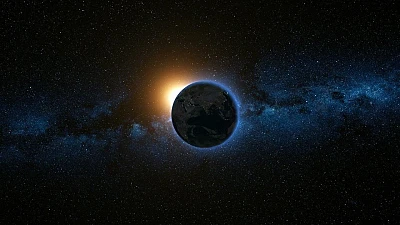Earth observation remains a central matter on the space agenda, not the least in the light of the recent natural disasters such as the La Palma and Tonga volcano eruptions or the floods in Europe in 2021.
Among other topics, the Lisbon Manifesto on Earth Observation for Africa and Europe, signed at the Europe-Africa Space Earth Observation High-Level Forum in June 2021, provides for reinforcing cooperation in this area as an essential tool for the digital and green transition, as well as for scientific, technological and business cooperation between Africa and Europe.
During COP26, the EU also announced a new Copernicus satellite constellation, operated by ESA and EUMETSAT, to track human-made emissions of greenhouse gases, with the modernisation strategy for Copernicus to be presented in the coming weeks of 2022. On the other hand, the Destination Earth initiative continued to be developed, with ESA having approved a contribution agreement for cooperation with the EU in October 2021.
And, in Portugal, Portuguese company GEOSAT acquired two medium and high-resolution Earth observation satellites, strengthening the supply of Earth observation data and becoming one of the largest satellite operators in Europe.
In this respect, data collection and sharing continues to play a vital role in ensuring access to data. Among other aspects, it is important to recall legal approaches that will impact these activities, such as the EU Proposal for the Data Governance Act (which establishes, among other points, a set of requirements for the re-use of certain data held by public sector bodies and the provision of data sharing services, most relevant in an increasingly data-based space economy) and the EU proposal for the Digital Services Act (which may also impact space systems and providers, especially to the extent that they host information / provide hosting services).
- Check here for the Main Milestones of 2021
